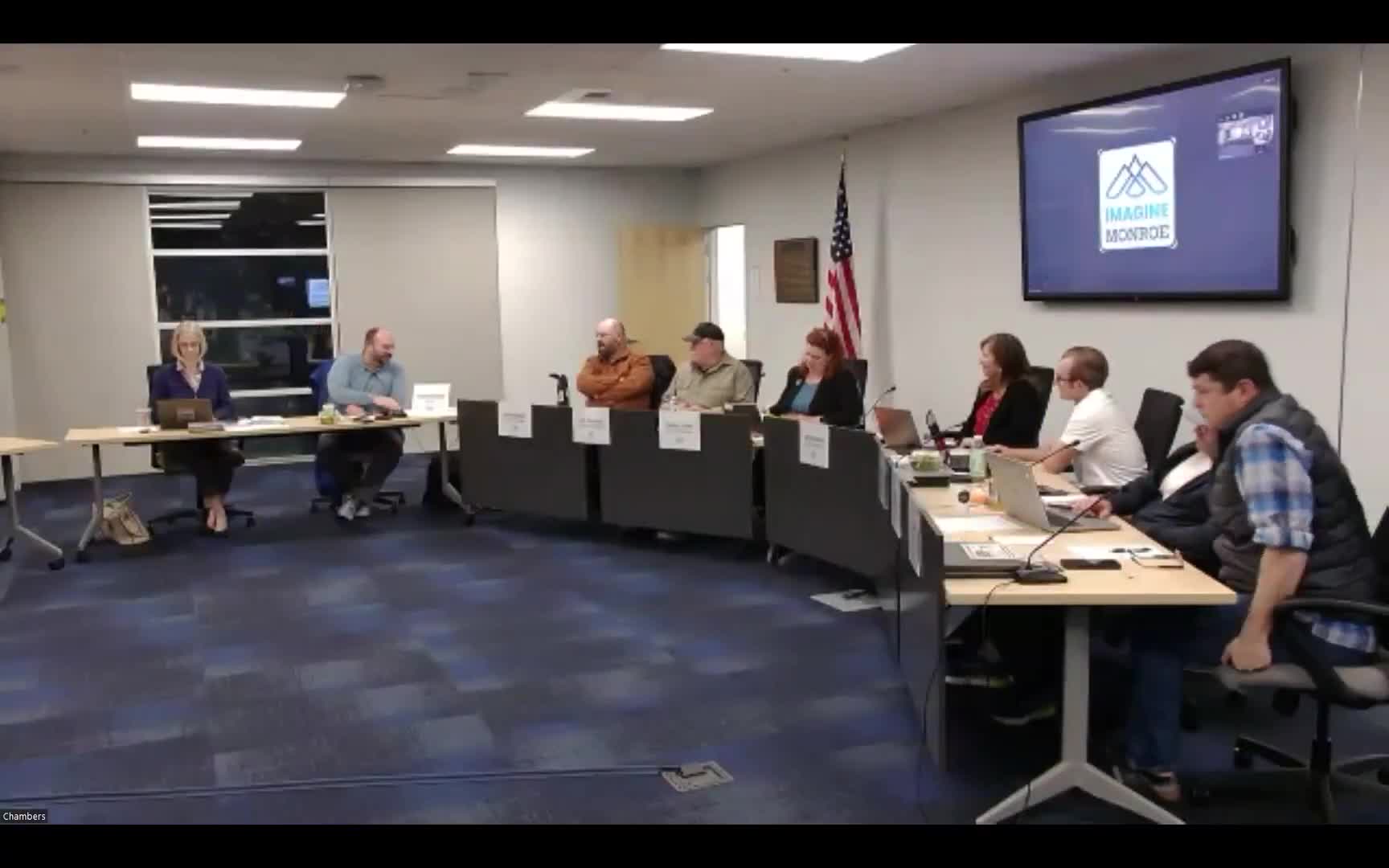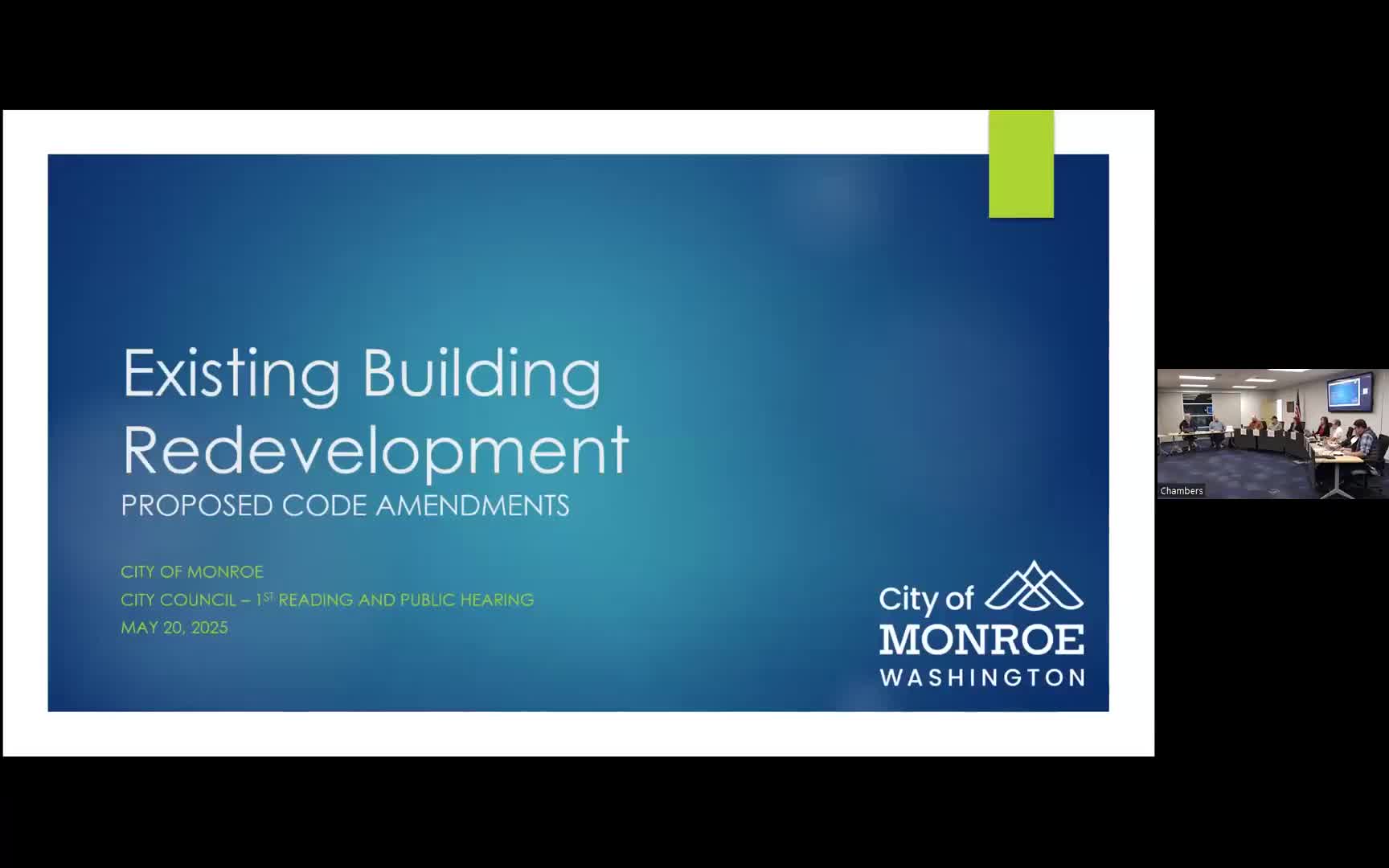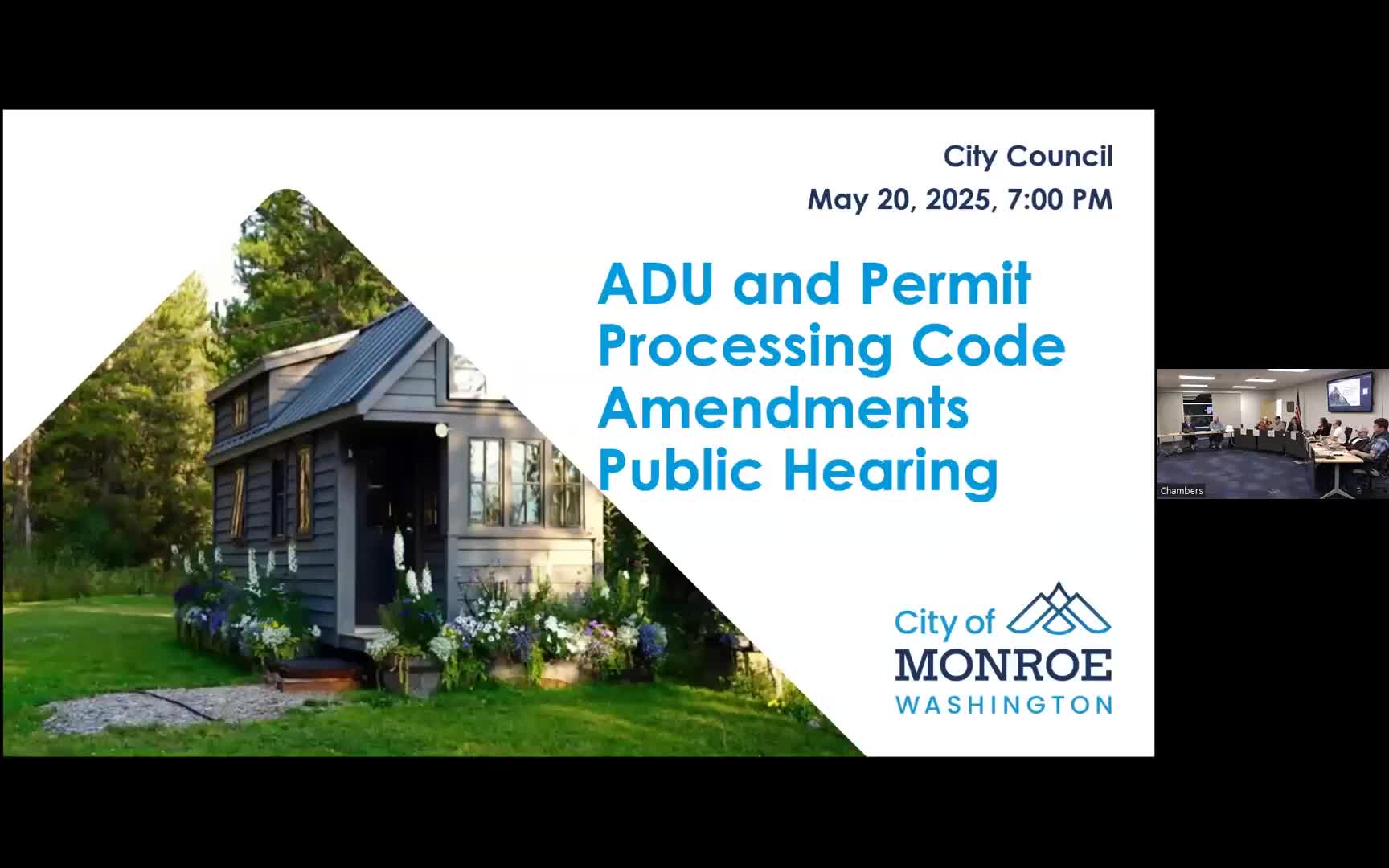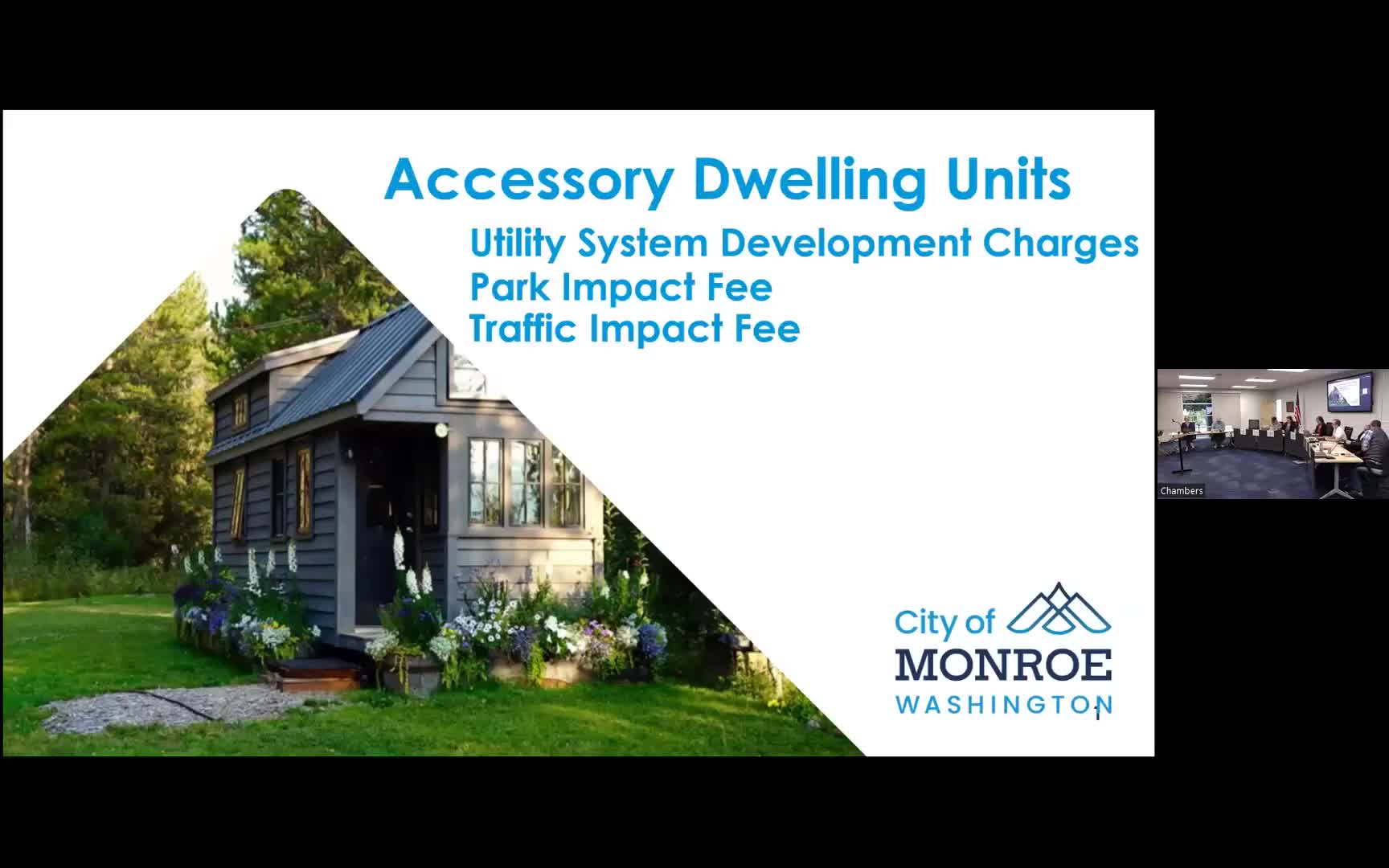Article not found
This article is no longer available. But don't worry—we've gathered other articles that discuss the same topic.

Council holds public hearing on interim R-7 zoning allowing townhomes; permanent codework to follow

Council approves first reading to allow conversion of older commercial buildings to housing under state law

Monroe keeps ADU hearing open, asks staff to study mixed-use allowances and height limits under new state ADU law

